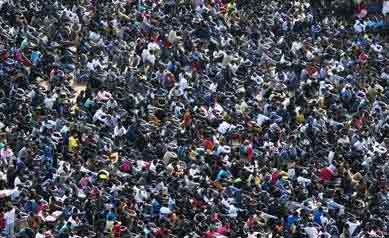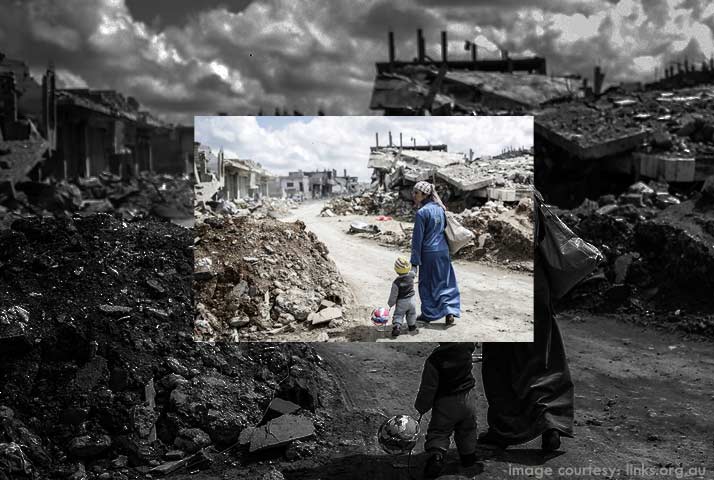Remembering September 1

If you think you know the history of Eritrea, here is a pop quiz: when did Eritrea’s armed struggle for liberation really begin? Was it on 9/1/1961 when Awate fired his first shot as many Eritreans believe or late October 1961 when my late uncle joined the revolution? If you answered 9/1/1961, you would be wrong and if you answered late October, you would also be wrong. If you answered 1963, 1964 or any other year prior to 1970, you would also be wrong.
Here is another quiz: When did independent Eritrea really turn into a dictatorship? Was it on May 1993 when the regime viciously bludgeoned former tegadeltis or on September 2001 when the G15 were purged? If you answered “September 2001”, congratulate yourself for being a history buff. If you gave any other answer, you may want to consult my book “Eritrean History for Dummies”.
Of all Eritrea’s historical milestones, September 1 ranks as one date that is universally celebrated by all Eritreans though some do so only with a great deal of reservation and some with even outright loathing. The latter paint a very horrific picture of the 60’s as a period full of fearsome gun-toting Muslim bandits who roamed the Eritrean wilderness with guns in their right hand (for slaughtering Christians) and the Quran on their left (for converting them). The bandits (we are told) were more interested in clannish, religious, and tribal allegiances than in formulating a clear political vision for the future. This state of affairs would continue – they maintain – until an Eritrean Robin Hood arose from somewhere deep in the Christian heartland to set things right bringing order out of chaos and wresting the liberation struggle from the bandits to give it to the Eritrean people.
This, more or less, is a bird’s-eye view of what is articulated in Isaias’ highly eloquent Tigrigna magnum opus known as Nhnan Elamanan. Though few take the manifesto seriously nowadays, its historicity will continue to be of great importance to scholars of history and sociology. Moreover those few that still believe in its contents & teachings are so devotedly and so completely into it that their potential to disrupt mutual tolerance should not be underestimated.
Beside EPLF, there is also one ethnic group (the Kunamas) who level some specific grievances against Awate (a charge which I personally can neither confirm nor deny at this time) but what is not disputed by Eritreans of all walks of life is the significance of Awate’s defiance not only for being the first (among the first) but also for infusing the movement with revolutionary zeal that would propel it relentlessly forward till final victory. Like a rocket with no breaks or like a fire that would not be extinguished, Awate’s first shot would float precariously for 30 years through many tribulations, deaths, and suffering to finally land and hit its target in 1991. What Awate began in 1961, was concluded when EPLF soldiers swarmed the streets of Asmara on May 1991. Awate (and many other early pioneers) would not live to see it but on 5/24/1991, their mission (phase I) was accomplished.
Eritreans will always remember fondly the day our country became independent. Regardless of the political affiliation Eritreans had at that time, everyone was elated that Eritrea was finally free of foreign domination. In fact, at that time, many Eritreans believed and hoped that Eritrea would be free of all domination. The latter did not happen but on May 24 1991, a state of Eritrea was born. Eritrea became a nation and it goes without saying that it will remain a nation. This independent nation that we today so proudly claim as ours is the end product (the fruit) of the seed that was planted 50 years ago by Awate and his handfuls. September 1 is the engine that started it all – the first step in the momentous “journey of a thousand mile” towards independence and that is its great significance and that is what we commemorate today!
But more important than its worth as the day the struggle of independence began, is its consecration of the spirit of defiance; of unbending determination; of courage and dignity. When Awate and his handful followers stood up defiantly and resolutely to take on the mighty behemoth of an Ethiopian army, they were setting a powerful precedent for all Eritreans. The spirit of fighting “against all odds” that was later popularized by EPLF (and a book) actually began with these pioneers who courageously faced the nearly impossible odds that were stacked against them. They forged ahead with grim determination believing that “lean freedom is better than fat slavery” and undeterred by these seemingly insurmountable odds.
Today we look at the opposition and lament the weaknesses but Awate and his team consisting of only about a dozen or so never entertained such defeatist thoughts.Their motto was martyrdom with dignity or victory or as Patrick Henry would have it “give me liberty or give me death!” Death was more certain in those days than “liberty” but these stalwart patriots had full faith that posterity will carry the independence torch to fruition. And posterity did!
But the struggle continues. Just as awate’s resistance was for freedom and independence from foreign oppression, ours is a struggle for freedom from domestic oppression. The goal is the same: freeing our people from tyranny. In that broader sense, Awate’s mission (phase II) has yet to be fulfilled. But the end is coming though it may not seem so now. No dictator could endure or survive for long such universal hatred of his own people as Eritreans feel toward theirs without at some point reaching a boiling point.
But dictators never see it coming and would never let go. What we saw in the Middle East is a perfect example of how tenaciously dictators hold onto power never imagining the downfall of their regime even when the whole world could see it crumbling. Why do dictators act in such irrational manner and why do they think they are so invincible? I have written on this very subject ten years ago on July 2001 under the title “the mind of a dictator” and since the nature of dictatorship seems to elude many Eritreans judging by what their write, I hope you will indulge me if I reproduce here a small part of that article:
A dictator is a leader who, through subterfuge, cunning, and intimidation was able to bend multitudes to his will. The ability to dominate the masses, deceive them, and make them do one’s bidding (often against their best interests) is so powerful an intoxicant, so an exhilarating tonic that a dictator will gradually start to believe that he is indestructible.
It is this powerful feeling of impregnability that drives many dictators to wars even when it is no longer necessary to do so. If there are no foes to overcome, the dictator will manufacture them for the sheer pleasure of proving his own omnipotence. That is why Isayas found it necessary to pick up fights with all our neighbors and that also explains his Singapore fantasy. Like the frenzied gambler whose greed intensifies with every win, each victory feeds the dictator’s appetite for greatness and glory.
Surrounded by ‘yes men’ who gladly accept his verdict on every issue, he starts to believe (and persuades others to join in his delusion) that his judgment is flawless. How else did I prevail, he will think, over so many people and over so many insurmountable obstacles all these years? All the men and women that died heroically to make him appear ‘great’ are inconsequential to him. In his mind, He deserves all the credit.
The fact that many individuals with better training and better education happen to eagerly kowtow to his ‘wisdom’ heightens this feeling of all-powerfulness and convinces him that he is superior to all others. That is why a dictator can always explain an event and sometimes believes his own lies.
After persuading his followers that his wishes and decisions are in reality theirs, the dictator literary transforms genuine patriots into fanatical zealots. Of course, fanaticism is not without its advantages. Extremists and mad people are among the fiercest fighters known to mankind. But fanaticism ultimately ends up killing itself ‘with its own dagger’ because it is based on a false sense of security. The fanatic is trained to never entertain defeat and rushes in where angels fear to tread. It is true that, to a certain extent, this is deliberately fostered by almost all military leaders to bolster the confidence of their fighters.
But what distinguishes the fanatic from others and what makes him a danger to himself and to his society is his utter lack of sense of his own limitations. That is why when reality finally strikes and forces him to face a real defeat, the fanatic absolutely refuses to accept it. We saw this happen in Eritrea when the Weyanes overran our country. Armed with their own brand of fanatics, the Weyenes matched, nay, surpassed their teachers in propaganda, sloganeering, and fighting.
That is what I wrote 10 years ago but it is true today as it was then. Milton spoke of man’s “unconquerable will.” Whatever the obstacles, the indomitable will of Eritrean people will finally reemerge unconquered. Awate and many of the early pioneers of Eritrea’s armed struggle are dead and buried but their love of freedom and justice lives on in all of us. That is their enduring legacy.
Happy September 1 and Eid Mubarak!



Awate Forum